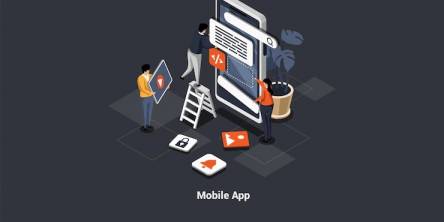Mobile Apps: How They Help Boost Retailers’ Businesses

The retail business today looks nothing like what it did till even about a decade ago. Thanks to the continued evolution of technology, the retail landscape and the customers it serves have changed considerably. Coming along from the archaic set up, the retail world, at the moment, continues to become increasingly digital. Companies are now turning to technology-driven solutions to keep up with the modern shopper’s demands and expectations. It is undeniable that solutions such as those listed above have played a crucial role in helping the industry adapt and successfully navigate through a decidedly challenging market. However, one tool has consistently ranked among the most potent tools that have come to the aid of retailers: Mobile apps.
This is because of the simple fact that mobile devices are omnipresent. A significant portion of the global population now relies on them for countless daily tasks, if not all of them. So, it is only understandable that they also turn to these handy little devices when it is time to shop, yes? Retail shoppers have come to depend on mobile apps considerably. Here are some stats to show just how much: 76 percent of buyers expect their mobile devices to enable customized shopping experiences. What’s even more interesting is that 77 percent of shoppers also admit that they would engage with a given retailer only if they offered a self-checkout facility. So, mobile apps have had quite the say in the retail experience over the past few years. Now allow us to walk you through some of their benefits to demonstrate precisely what makes mobile apps so popular among retailers and their customers.
- Improved customer experiences: Today’s shoppers want everything done quickly, including finding what they wish to and executing the purchase. Fortified with technologies such as RFD, beacon technology, GPS, etc., mobile apps can be used to quickly guide them to the section and the precise shelf where they will find exactly what they are looking for.
- Real-time inventory tracking: Mobile apps are valuable for retailers and deliver a world of benefits for them. Take inventory tracking, for example; with mobile apps; retail employees can easily keep an eye on the stock in the store and the warehouse, quickly locate it as and when required, and so much more. Such abilities are vital for achieving ace customer experiences in any retail establishment.
- Better engagement: Engagement is not only for websites and blogs; retailers too must ensure high rates of customer engagement to, then, achieve better sales. Mobile apps help in this regard via push notifications, etc. Such solutions allow retail businesses to share relevant content, keep them apprised of new offerings, special offers, and more, thus drive better engagement with your establishment.
- Foster customer loyalty: Another critical goal for any retailer is to foster loyalty among customers for their establishment. Mobile apps can help do that via a variety of means to offer special deals, discounts, benefits, etc. The efficacy of such endeavors can be further improved when combined with location technology by ensuring that such information is delivered to customers at opportune moments, such as when they are in the store's vicinity.
- Boost employee productivity: There are plenty of ways mobile apps prove to be mighty valuable for retail business owners. One of these ways is by enhancing employee productivity, which is achieved by ensuring processes across the chain are streamlined, enabling seamless communications amongst them, and so much more.
Because of the benefits mentioned above, it is easy to see why and how any business in the industry would do well to undertake retail app development at the earliest. But before you do, make sure that you carefully consider the decision, select the right tools for it, etc.
Similar Articles
Mobiles and by extension, mobile apps are the basis for the modern mobile device and take it beyond a mere communication tool. In today’s world, information has to be available at our fingertips and people want mobile applications to do instantly what websites used to do before, give information and details instantly, anytime & anywhere
In the ever-evolving landscape of app development, embracing innovation is not just a choice but a necessity. Enter serverless architecture, a transformative paradigm reshaping how we approach app development.
EdTech developers leverage modern technology to create immersive and engaging learning apps. A successful product relies on solid technology, including front-end frameworks like React.js, offering efficient development and incorporating cutting-edge features like gamification and voice recognition for a standout user experience in the education industry
Internet of Things, or IoT, is a fast-growing concept that promises a transformation in how we live and work. It enables us to connect and control smart devices such as wearables, medical devices, sensors & more using mobile apps. IoT has impacted many aspects of our lives, and some of the most notable are home building, logistics, healthcare, and more.
Mobile app development has become an essential part of the digital ecosystem as mobile devices have become more prevalent than desktops or laptops. Regarding mobile app development, two popular approaches are Xamarin and native mobile app development.
With React Native becoming one of the preferred tools for developing mobile and web apps, there has been a growing focus on outsourcing software development based on this language
With over 6.3 billion estimated smartphone users worldwide, mobile app usage is growing exponentially. Studies have shown that Americans check their phones 262 times daily, once every 5.5 minutes! People check their phones at home, at work, on the street, while eating, in bed, and cars.
With the number of companies embracing digital solutions growing continuously, there is also an increasing demand for cloud services. Cloud development services help businesses (small or big) take advantage of digital transformation and to move their infrastructures to the cloud.
Businesses nowadays are fully enmeshed in the outstaffing and outsourcing trend. In order to boost production and take advantage of the expertise of specialized experts, it is safe to assume that modern professionals are more reliant on outsourcing









